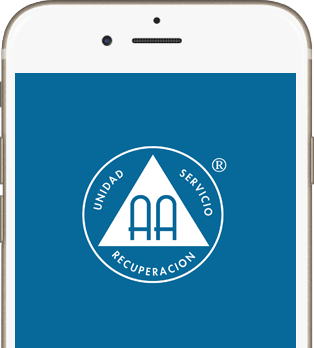THE STRUCTURE OF A.A. IN SPAIN
Currently, in Spain there are Alcoholics Anonymous groups all over the country, as well as in health centers and correctional institutions.
When two or three alcoholics meet with the purpose of seeking sobriety, they can call themselves an Alcoholics Anonymous group, as long as they have no other affiliation as a group.
For purely administrative purposes, A.A. has divided Spain into four regions: North, South, East, and Central-West. These regions, in turn, are divided into areas with the goal that one day, each province will constitute an area.
Each area comprises the groups located within its geographic range. These groups usually have a general service representative (G.S.R.).
The G.S.R. collects the opinions of the group conscience - (informed majority and in the spirit of A.A.) - and discusses them in the Area Assembly with the G.S.R.s of the other groups from the same area. Following the assembly discussions, the area conscience emerges, and this can facilitate the carrying out of common actions in an area, and also, the delegate can attend the General Service Conference (general assembly) to discuss the area conscience with the delegates of the other areas and with the General Service Board (governing board), and in this way, the conscience of A.A. in Spain emerges.
On his return from the annual conference, the delegate informs the G.S.R.s in the area, and these people their respective groups, about the recommendations which arose from the conference. These are merely suggestions. Groups have the power in A.A., and if they act on the suggestions, they do so because it seems appropriate to them.
The General Service Board is currently composed of ten people called trustees, and there are two types of these: two non-alcoholics (class A trustees) and eight alcoholics (class B trustees).
As indicated previously, in 1979, the General Service Association of A.A. was formed in Spain, and it designated the General Service Board as its representative before the Spanish State.




